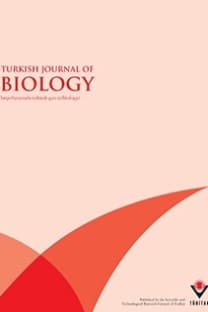Identification and isolation of salt-stress-responsive transcripts from Gossypium arboreum L.
Key words: Cotton (Gossypium arboreum), differential display, salt-stress-responsive transcript
Identification and isolation of salt-stress-responsive transcripts from Gossypium arboreum L.
Key words: Cotton (Gossypium arboreum), differential display, salt-stress-responsive transcript,
- ISSN: 1300-0152
- Yayın Aralığı: 6
- Yayıncı: TÜBİTAK
Nilüfer ORHAN, Esra AKKOL, Fatma ERGUN
Xivanand Narayan VERLECAR, Priya Brata DAS, Karmabeer JENA
Gülçin ŞİMŞEK, Serpil OĞUZTÜZÜN, Servet GÜREŞCİ, Murat KILIÇ, Ömer Faruk BOZKURT, Ali ÜNSAL
Muhsin KONUK, Tuğba ŞAHİN, İbrahim Hakkı CİĞERCİ
Effect of cell-conditioned media on biomass production of Leishmania parasites
Melahat BAGIROVA, Rabia ÇAKIR KOÇ, Adil ALLAHVERDİYEV, Melike ERSÖZ
Dipeptidyl peptidase IV production by solid state fermentation using alternative fungal sources
Gaye ÖNGEN, Sayıt SARGIN, Özlem ÜSTÜN, Ceren KUTLU, Mesut YÜCEL
Batool EJAZ, Zahoor Ahmad SAJID, Faheem AFTAB
Utilization of gold nanostructures in biomedical applications
Gamze TAN, Mehmet Ali ONUR, Necdet SAĞLAM
Biological screening of various medicinal plant extracts for antibacterial and antitumor activities
Fatma PEHLİVAN KARAKAŞ, Arzu YILDIRIM, Arzu TÜRKER
Zahra HOJJATI BONAB, Safar FARAJNIA, Reza GHOTASLOU, Elhameh NIKKHAH
